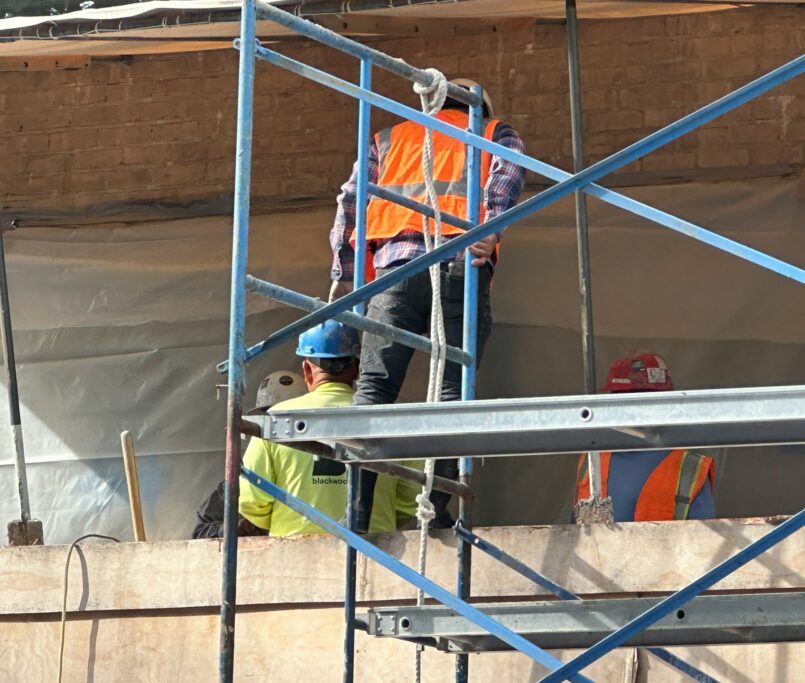How to Tell if Your Caulking Services Provider Cut Corners
Caulking is a simple yet crucial step in keeping a building well-sealed and protected from the elements. Whether rain, wind, or unwanted pests threaten your home, proper caulking acts as a strong barrier. Many homeowners rely on professionals to handle their caulking needs, but what if your service provider is cutting corners? Knowing how to spot any issues can save you time and money, not to mention prevent headaches down the line.
Imagine you’ve hired someone to take care of your caulking, confident they’re doing a thorough job. Later, discovering gaps or worn-out caulk can leave you questioning their work. Recognizing the signs that a caulking provider might not be doing their best helps you maintain confidence in your home’s integrity. Read on to learn what you should look out for when assessing your current or future caulking services.
Signs Of Poor Preparation
Ensuring a solid caulking job begins with proper preparation. Skipping this important step often leads to unsatisfactory results, and it’s one of the main areas where service providers might skimp. Surface preparation is like laying the groundwork for a successful seal; when that’s neglected, the entire job becomes compromised.
Here’s what to watch for:
– Uncleaned Surfaces: Dust, dirt, and old residue can prevent the caulk from adhering correctly. If the surfaces aren’t spotless, there’s a good chance the job won’t last.
– Existing Caulking Not Removed: Simply applying new caulk over old layers is a shortcut some might take. It’s important for professionals to remove old, failing caulk completely before applying a fresh layer.
– Lack of Priming: For certain surfaces, a primer might be necessary. If priming is skipped, the bond will be less effective.
Spotting these signs early helps you question the thoroughness of the preparation. Don’t hesitate to ask your provider how they ready the area before they actually start caulking. A bit of insight could help prevent problems associated with poorly applied caulking later.
Use Of Subpar Materials
Not all caulking materials are made equal. The difference in quality between high-grade and low-grade materials can be substantial, affecting how long the caulking lasts and how well it seals. If a service provider uses cheap materials, that means they might not have your best interests at heart.
To spot low-quality materials, first consider:
– Quick Wear-and-Tear: If the caulking begins to fail soon after application, this is a red flag the materials used weren’t durable.
– Inadequate Sealing: High-quality materials should fully seal gaps, providing a tight closure against air and moisture. Inferior ones might leave small openings.
Checking on these aspects off the bat makes sure you’re getting what you’re paying for. Quality caulking should last and perform well, making you feel secure against weather and time. Knowing your materials is key to reconciling any poor service before it becomes a costly issue.
Inconsistent Application Techniques
Getting the technique right is just as important as using quality materials. Proper application ensures the caulk forms a strong, uniform barrier. When a provider employs incorrect techniques, the effectiveness of the caulking can be severely diminished. This might cause issues down the road, making it another area where corners are often cut.
Here’s how to tell if the application might have been off:
– Uneven Lines: Straight, consistent lines are a hallmark of professional caulking. Wobbly or haphazard lines suggest a lack of skill or care.
– Presence of Gaps: If you notice any gaps within the caulking line, this indicates the seal isn’t complete and can lead to leaks.
– Excessive Caulking: While it might seem like extra caulking would ensure coverage, it often results in a messy appearance and doesn’t improve the seal.
The key is consistency: proficient application techniques should make the finished caulk look neat and seamless. If you see any of these flaws, it might be time to have a discussion with the service provider to check their approach.
Lack Of Attention To Detail
Attention to detail separates a good caulking job from a great one. Even with proper preparation and materials, the small things matter. Those finishing touches can make all the difference in how long the caulking holds up and how it looks.
Keep an eye out for these telltale signs:
– Missed Spots: Missing entire sections or small spots shows a lack of thoroughness. Each gap can turn into a problem area.
– Messy Lines: Smudges or uneven edges suggest poor craftsmanship. Quality caulking should be clean and precise.
For an example, if you’ve hired a painter to touch up a wall and they miss a visible corner, it becomes quite an eyesore. The same applies to caulking. Precision in applying caulk isn’t just about aesthetics; each small oversight can lead to bigger problems with watertightness and insulation. It’s wise to inspect the work closely afterward to ensure that everything has been done well.
Making The Right Choice For Your Home
When it comes to safeguarding your home, trusting a reputable caulking service matters. Choosing a provider who commits to thorough preparation, uses quality materials, and prioritizes precise application techniques ensures long-lasting solutions. Cutting corners in any of these areas can lead to poor results and increased costs over time.
Selecting the right service provider involves asking the right questions and knowing what to look for. By being informed about these potential pitfalls, you empower yourself to make better choices that will protect your home effectively. Assert your expectations for quality in each project, knowing that every step, from preparation through to those final dabs of caulk, plays a role in your home’s resilience against the elements.
Choose Quality Seal Australia for your reliable caulking needs. Our caulking services ensure your home is protected with precision and expertise. Trust us to help maintain your home’s integrity, so you can enjoy peace of mind for years to come.





